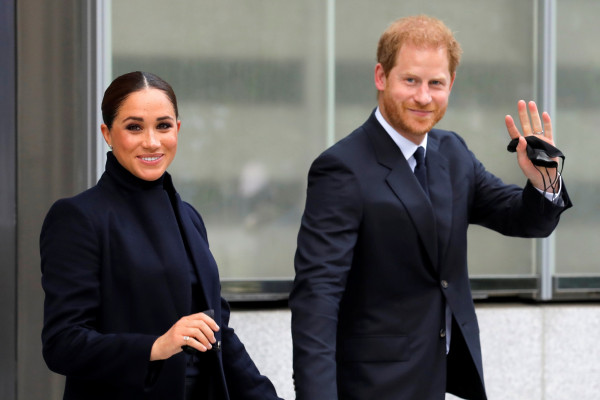Prince Harry Criticized for Clinging to Military Ties for Self-Validation, Says Royal Expert

Prince Harry's attendance at the 2024 ESPY Awards and his receipt of the Pat Tillman Award for Service have ignited a fresh wave of controversy. The Duke of Sussex, recognized for his 10-year military service and the founding of the Invictus Games, is facing criticism, including from the family of Pat Tillman. This scrutiny has cast a spotlight on Harry's continued connection to his military past, which some believe is a bid for self-validation.
Richard Kay, a royal commentator and former royal correspondent for the Daily Mail, shared his insights on the matter during a recent episode of the "Palace Confidential" podcast. Host Jo Elvin prompted the discussion by questioning if Prince Harry appears "a bit lost" in his post-royal life.
"It kind of feels like it's been that way for the last four years," Kay remarked. "He wanted to break away, he did break away, he turned his back on service, but he's sort of umbilically linked, if you like, still to that same cause because he needs to validate himself."
Kay elaborated that while Harry's military service is commendable, his persistent association with it can be grating to some. "He was a brave soldier, he did two tours in Afghanistan, but nevertheless the constant reminder of his military connection grates with a lot of people who can't get over the fact he chose to put financial gain and a break from royal tradition ahead of service."
Harry's military career spanned from 2005 to 2015, during which he served with distinction in the British Armed Forces. In 2014, he founded the Invictus Games, a sporting event dedicated to injured veterans and servicemen and women. The Games have been widely praised for their positive impact on the lives of wounded military personnel.
Despite these accomplishments, Prince Harry's recent accolade has not been universally well-received. Mary Tillman, mother of the award's namesake Pat Tillman, expressed her reservations, stating that there were "recipients that are far more fitting."
Body language expert Judi James also weighed in on Harry's demeanor during the ESPY Awards. According to James, Harry exhibited a "haunted and terrified-looking eye expression," indicative of his awareness of the surrounding criticisms. "Harry's body language during his speech suggested his complete awareness of the criticism that had been brewing prior to it," James told The Sun. "Like any good A-list actor accepting an Oscar, he began by looking overwhelmed and shocked though, with a good dollop of humble thrown in. He posed, staring ahead with a haunted and terrified-looking eye expression, standing hunched in what looked like performative disbelief."
The Duke of Sussex's continued reliance on his military connections for public validation has sparked a broader debate about his role and identity post-royal life. His departure from royal duties in 2020, coupled with his and Meghan Markle's move to California, marked a significant shift. However, it appears that the prince's efforts to forge a new path remain closely tied to his past.
Kay's comments underscore a sentiment shared by many royal observers: while Harry's dedication to military causes is genuine, his persistent emphasis on this aspect of his identity may reflect a deeper need for validation. "He needs to validate himself," Kay asserted. "And it seems to me the one way he can validate himself is through his military links."












